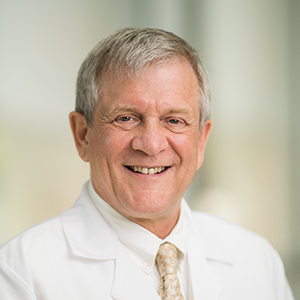Charles F. Burant, MD, PhD, will lead Michigan Medicine’s Taubman Institute for an additional five-year term, announced Marschall Runge, MD, PhD, executive vice president for medical affairs and dean of the U-M medical school.
Burant was first appointed in 2017, succeeding founding director Eva L. Feldman, MD, PhD. His second term will span 2022-2027.
“We are very excited that Dr. Burant will continue his leadership of the Taubman Institute, and advance the transformational research conducted by our Taubman Scholars,” said Runge. “The work supported by the Taubman institute makes a tremendous difference in the lives of our patients and families.”
The Taubman Institute was established in 2007 with a gift from the late philanthropist A. Alfred Taubman, whose vision was to provide unrestricted funding to accelerate biomedical research by physician-researchers at U-M.
More than 50 Taubman Scholars and 15 interdisciplinary and team science projects have received grants from the institute for research in a diverse array of fields. The institute also supports investigators and the scientific community with chalk talks, Taubman Tech Talk lectures, mentoring and other engagement.
“It’s been an honor to serve as director, especially throughout this tumultuous time,” said Burant. “I am most proud of our response to the pandemic, with the institute’s staff supporting the rapid launch of several programs to understand the disease and treat individuals with Covid-19. We’ve also been able to start research programs that are changing our scientific understanding of autoimmunity, eye disease, and developmental disorders, among others.
“I appreciate the support of the Taubman family, the leadership of the medical school and the guidance of the Taubman Institute executive committee.”
Under Burant’s leadership, the institute’s mission has broadened to include more support of team science and clinical research in the form of Taubman Institute Innovation Project grants, which are funding programs in fields ranging from organ transplant to lung disease to infant food allergy.
Burant, who joined the Michigan Medicine faculty in 1999, is the Robert C. and Veronica Atkins Professor of Metabolism and holds several other faculty posts. His laboratory focuses on diabetes, including the mechanisms of insulin resistance, and on innovative studies of obesity, including a maternal health study that examines the effect of pre-conception weight loss on offspring.
An endocrinologist, he earned both his MD and PhD in molecular and cellular biology from the Medical University of South Carolina in Charleston. His internship and residency were served at the University of California, San Francisco, and he completed his fellowship in the Department of Medicine, Endocrinology Section at the University of Chicago. He joined the University of Michigan faculty in 1999.
“The momentum in biomedical discovery is exciting, and we have much to anticipate,” said Burant, “We’ll continue to expand the impact of the Taubman Institute by working with our outstanding faculty and their teams to develop innovative develop technologies, programs, interventions, and therapeutics to fulfill Mr. Taubman’s desire to alleviate human suffering.”






